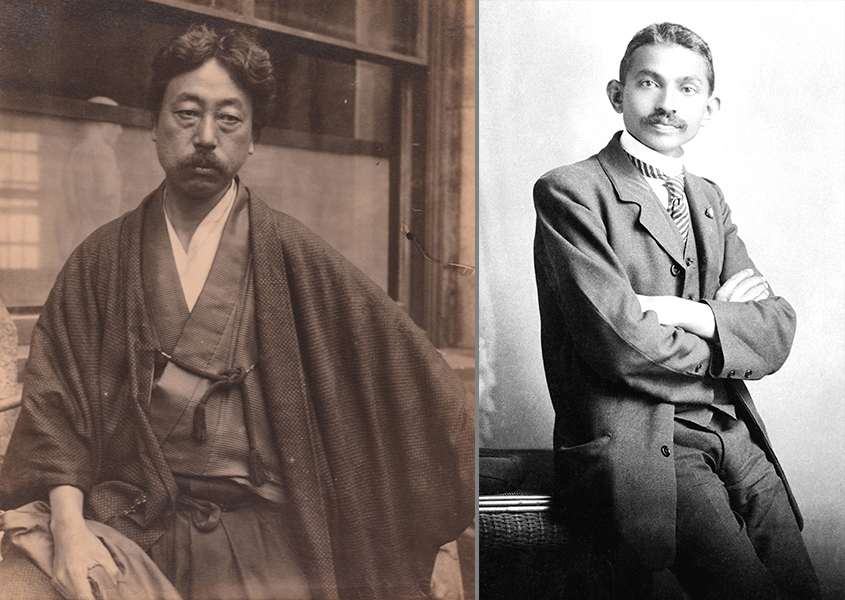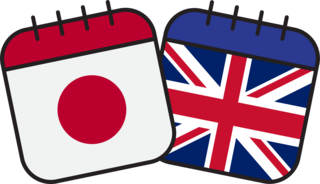
Self-made and World Aware: Clothing Styles of Okakura Kakuzō and M.K. Gandhi
- 16 June 2022
- 6:00pm – 7:00pm
- Online
- https://www.sainsbury-institute.org/ja/events/interweaving-influences-and-adaptations-sartorial-endeavors-of-okakura-kakuzo-and-m-k-gandhi/r
- 01603 597507
- sisjac@sainsbury-institute.org
- Tweet
THIRD THURSDAY LECTURE - SAINSBURY INSTITUTE
Okakura Kakuzō (1862-1913) and Mohandas Karamchand Gandhi (1869-1948) are well-known names in modern Asian history. Okakura was born in Yokohama, Japan, in December 1862 to a father who was an ex-samurai. Before moving to Tokyo for higher education, he studied under American missionaries in Yokohama. While still in his twenties, Okakura was already a part of Japanese art circle networks in Japan and the United States. M.K. Gandhi is an illustrious name in modern Indian history, and he is commonly addressed as Mahatma (great soul) and Bapu (father) by Indians. Gandhi was born in Porbandar, British India, in October 1869. His father worked as a minister under the Prince of Kathiawad. After receiving education in Porbandar and Rajkot, eighteen-year-old Gandhi left for London to study for the bar in 1888. Both Okakura and Gandhi were influential and wrote a lot in English. Gandhi’s collected writings are close to hundred volumes. Okakura’s well-known works include The Ideals of the East (1903) and Book of Tea (1906). In addition to their textual modes of interaction, this talk focuses on Okakura and Gandhi’s sartorial expressions to understand how both men gave meaning to contemporary ideas in the age of global empires and inter-cultural associations. This study is based on photographs and writings collected from archives in Japan, India, the United States, and the United Kingdom.
About the Speaker
Maumita Banerjee, Ph.D., is a current Robert and Lisa Sainsbury fellow (2021-2022). She got her Ph.D. from Waseda University (Japan). Her publications are forthcoming from IJAS (Cambridge University Press 2022) and Routledge (2023). She is also an invited researcher at Waseda University.
Image (left): Okakura at The Museum of Fine Art, Boston
(c.1905), Tenshin Memorial Museum of Art, Ibaraki; Image (right): Mohandas Karamchand Gandhi at Johannesburg, South Africa (1906), National Gandhi Museum.
Online lecture, via Zoom.
50 min lecture followed by Q&A.
Free and open to all, booking essential.
To check your time zone conversion if you are joining from outside the UK, click here.
